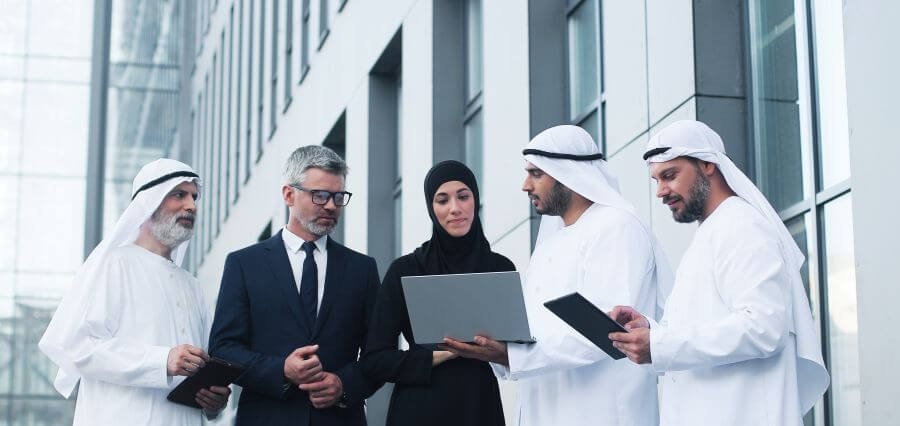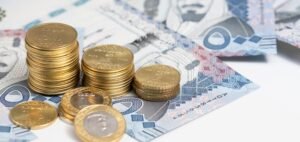The Gulf region, encompassing countries like Saudi Arabia, the United Arab Emirates (UAE), Qatar, Kuwait, Oman, and Bahrain, has long been synonymous with the Black gold or oil wealth. However, in recent years, this perception has been evolving. As global dynamics shift and technological advancements reshape industries, the Gulf economies are undergoing significant transformations. It is interesting to delve into the evolving landscape of the Gulf economy, exploring key trends, challenges, and the opportunities that lie ahead.
Economic Diversification
Historically reliant on oil revenues, Gulf countries are actively diversifying their economies to reduce dependency on hydrocarbons. This shift is driven by the recognition of the finite nature of oil reserves and the volatility of global oil prices. Governments in the region are investing heavily in sectors such as tourism, technology, renewable energy, and manufacturing to stimulate economic growth and create new employment opportunities. The progressive mindset towards holistic and sustainable businesses is the turning point.
Initiatives in Technology and Innovation
The Gulf region is embracing technology and innovation as key drivers of economic development. Countries like the UAE and Saudi Arabia are investing in building knowledge-based economies, with a strong focus on sectors like artificial intelligence, blockchain, and advanced manufacturing. Aiming to foster the culture of innovation, the governments have initiated collaborations with several advanced countries in setting up of modern manufacturing facilities, promoting R&D with technical education infrastructure and other measures. Initiatives such as Dubai’s Smart City project and Saudi Arabia’s Vision 2030 are aimed at fostering innovation ecosystems and attracting global talent and investment.
Modern Infrastructure Development
The developments happen with the state-of-the-art facilities which aid in training and harnessing the technical manpower. As a foundation, the infrastructure development remains a top priority in the Gulf, with significant investments in transportation, utilities, and urban development projects. Mega-projects such as NEOM in Saudi Arabia, the Qatar World Cup stadiums, and the expansion of transportation networks across the region are not only driving economic growth but also enhancing the quality of life for residents and attracting foreign investment.
Responsible Sustainable Development
Global warming is a major concern across the world, where most of the countries are adopting preventive and corrective measures, the Gulf countries have also stepped up their sustainability initiatives. With growing concerns about climate change and environmental sustainability, Gulf countries are increasingly focusing on sustainable development practices. This includes investments in renewable energy sources such as solar and wind power, as well as initiatives to reduce carbon emissions and promote environmental conservation. The UAE’s ambitious goal to achieve net-zero carbon emissions by 2050 exemplifies the region’s commitment to sustainability.
Current Economic Challenges
Despite these positive trends, the Gulf economy faces several challenges. The COVID-19 pandemic has had a significant impact, disrupting global trade, tourism, and investment flows. Additionally, geopolitical tensions in the region, such as the rift between Qatar and its neighbours, pose risks to economic stability. Furthermore, the transition away from oil dependency requires careful planning and investment in human capital, long-term collaborations and infrastructure.
Opportunities for Growth
Every correct decision leads to opening of new doors of opportunities. Despite challenges, the Gulf economy offers significant opportunities for investors and businesses. The region’s strategic location between East and West, along with its strong logistics and transportation networks, makes it an attractive hub for trade and investment. Furthermore, the young and dynamic population, coupled with increasing digitalization and consumer demand, presents opportunities across various sectors, from e-commerce to fintech.
Regional Cooperation
Progress happens with innovation and collaboration. The mutual cooperation among Gulf countries is essential for maximizing the potential of the region’s economy. Initiatives such as the Gulf Cooperation Council (GCC) facilitate collaboration on economic, political, and security issues. Closer integration and coordination among Gulf states can lead to economies of scale, greater market access, and increased resilience to external shocks.
Fostering Progressive Future
The Gulf economy is undergoing a profound transformation, driven by efforts to diversify away from oil, embrace technology and innovation, and promote sustainable development. While challenges remain, including the impact of the COVID-19 pandemic and geopolitical tensions, the region is poised for continued growth and prosperity. By leveraging its strengths, investing in human capital, and fostering regional cooperation, the Gulf can navigate these challenges and emerge as a dynamic and resilient economic powerhouse on the global stage.




